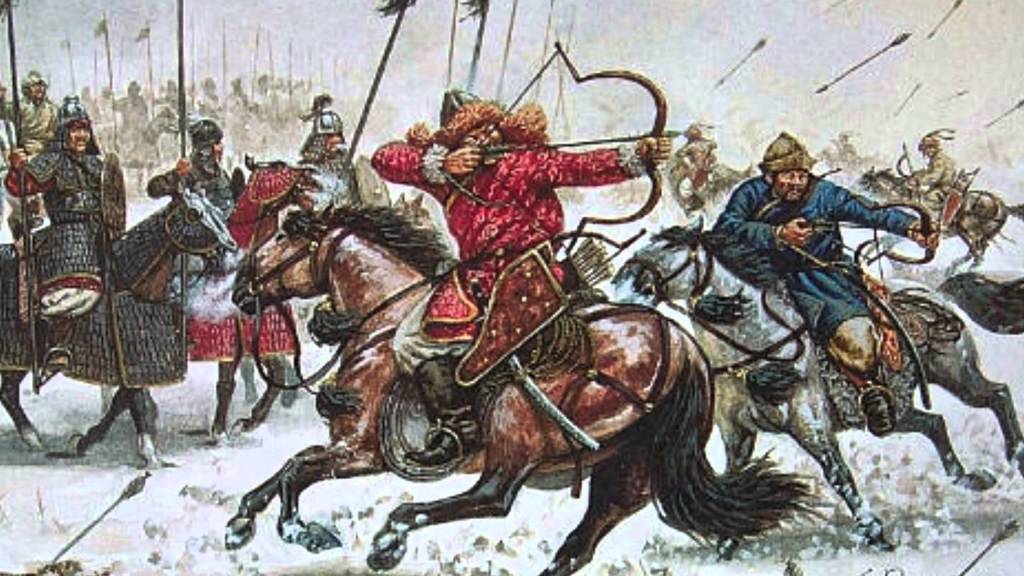
In some dictionaries the word horde is said to come from sixteenth century Polish, Horda, or Turkish, ordu, meaning (royal) camp, or wandering tribe. Other etymologists date the word more than three centuries before that, and give its derivation as being from Mongolian: orda – a site of power, army, huge camp, ‘an empire on horseback.’
So, similar meanings whatever the actual derivation, and who hasn’t heard of the ‘Mongolian marauding hordes?’ These days we continue to use the term in this derogatory way, as in – hordes of tourists / hooligans / insects …
At the time of the Mongol Empire, the term had no negative overtones. The Mongols were not (just) a horde of marauders, pillaging and killing their way across Asia. True, they did a bit of both but, especially under Jochi Khan, Genghis Khan’s son and heir, the main emphasis was on developing trade routes and collecting taxes from businesses in the areas they invaded and subdued. For this to be effective, he and his successors realised, they needed to be pragmatic and leave the new territories with the resources to run profitable businesses that they could levy taxes on. In return, the lands invaded required a degree of religious and ethnic tolerance from the Mongols.
This was the modus operandi of the Mongol ‘Orda’ and although, unlike the Egyptian and Roman empires, they left no magnificent buildings to be remembered by, they did in fact build a string of small trading cities, and left trading routes linking East and West which survived through the succeeding centuries. Not surprising therefore that by the time Genghis’s descendent died, he was labelled the ‘builder,’ not the ‘wrecker.’
Rather than undisciplined marauders, the Mongols were businessmen and tax collectors who lead surprisingly ordered lives – extending their empire only during the winter months and spending the summer recuperating, letting their horses rest, and quaffing a reportedly nutritious, alcoholic, beverage made from fermented mares’ milk, to build themselves up for the winter raids. It was a system that worked well for the Mongols for generations, until the pandemic known as the Black Death in the fourteenth century lead to serious depopulation across their territories, and they could no longer generate the revenue from them to sustain an empire.
NB: Such organisation and ‘order’, you might think, would have etymological links to their ‘Orda.’ But no; the word order comes from Latin ordo / Old French ordre, and meant then exactly what we understand it to mean these days.
You can read more about the orderly tax collecting Mongol horde in a recently published book, The Horde – How the Mongols changed the world, by Marie Favereau.
Links to my books and social media
You can find all my books and short stories on Amazon books, At least one story always free. ALL BOOKS FREE ON KINDLE UNLIMITED